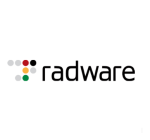I use the solution in my company to protect an external website.
The product's WAF was useful to protect against the OWASP attacks.
The tool is a pain to deal with when it comes to the area of configuration. Basically, users get a lot of false positives with the product. The aforementioned area can be considered for improvement in the product.
I think the reporting elements could be a bit better in terms of having built-in reports, considering how everything has to be a cluster query when you write it, making it an area where users customize the tool. The reporting elements are an area with shortcomings in the tool that could be better as it would be useful to deal with false positives.
I have been using Microsoft Azure Application Gateway for five months. I use the solution internally for my company. My company has a gold partnership with Microsoft.
It is an easily scalable solution.
The tool is not meant for users since it is designed for public access; considering that, I would say that the solution provides protection to our company website, which has thousands of visitors.
The solution's technical support is okay and not that good, considering that my company still has some existing tickets open with the support team, which are related to some login stuff. The problem with Microsoft is they outsource their support to vendors in other parts of the world, so it is like a lucky draw system, meaning you are lucky if you get someone good.
The product's initial setup phase was easy.
The solution can be deployed in a day.
I deployed the solution by myself in my company.
The product's ROI is okay, in my opinion.
The price of the product is okay. There is a need to pay a fixed price per month to use the product. There are no additional payments to be made to Microsoft apart from the charges paid towards the monthly licensing costs attached to the solution.
My company had looked at the options offered by Cloudflare, but we decided to stick to the stack of services offered within Azure.
For most of our company's in-house resources, we are dependent on the cloud services offered by Microsoft, so it was easy to adopt Microsoft Azure Application Gateway in our organization.
To utilize Microsoft Azure Application Gateway for managing web traffic load balancing in our company, we use products within the Azure landscape like Azure Load Balancer or Azure NAT Gateway.
In our company, we don't have multiple instances of the application to utilize Microsoft Azure Application Gateway for application-level routing and URL-based content distribution. There is pretty much just one instance to deal with in our company, which makes the use of the tool quite straightforward.
The tool's WAF provides a fairly adequate level of protection against common vulnerabilities.
The solution doesn't require any maintenance once it is deployed.
Integrating Azure Application Gateway with other Azure services in our company's existing infrastructure is a fairly seamless process.
I haven't had any issues with the scalability and performance of the product.
I would ask those who plan to use the solution in the future to plan the deployment so they have more time to analyze their data when using the WAF, and you need at least six months of history to see the traffic patterns and to get an alert on false positives.
I rate the product an eight out of ten.



















